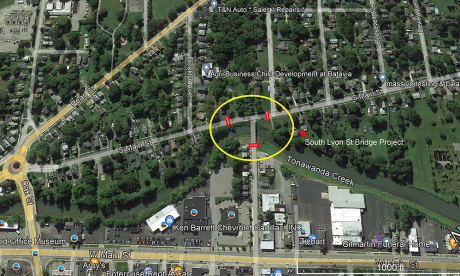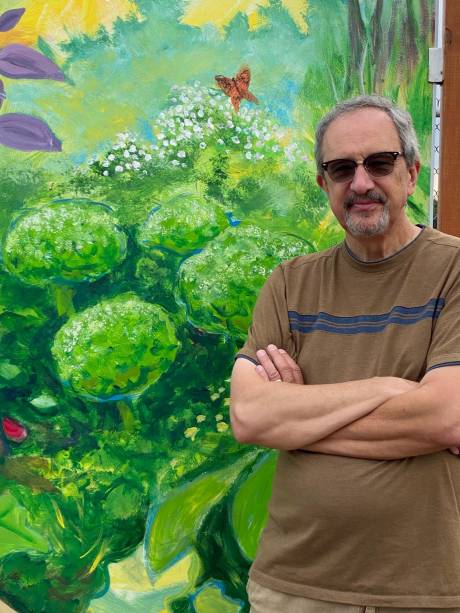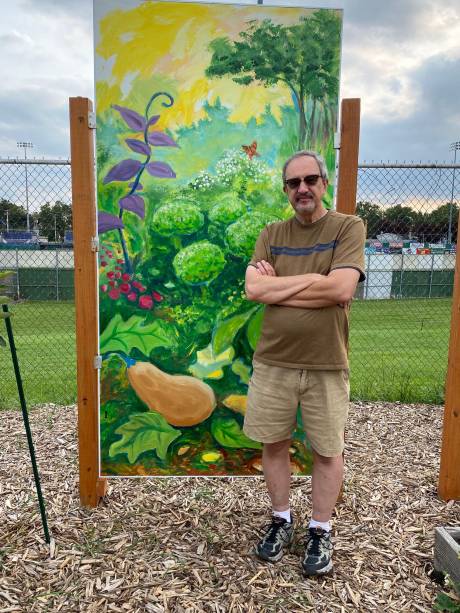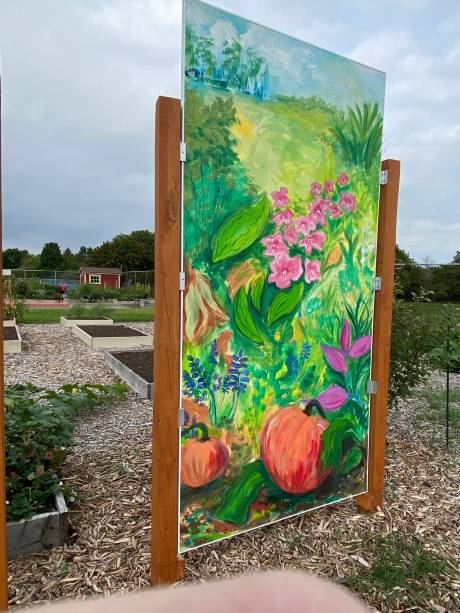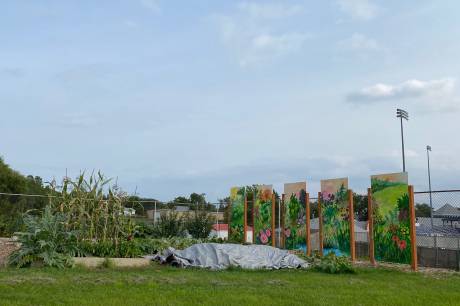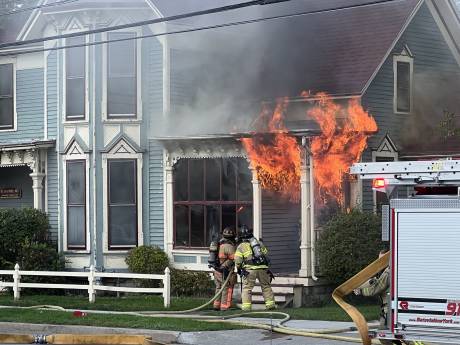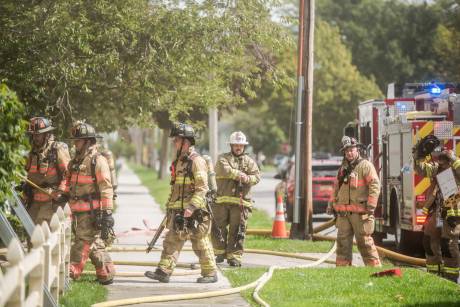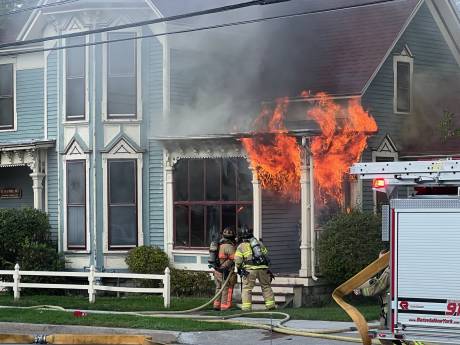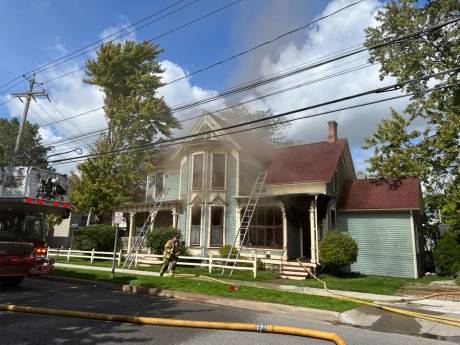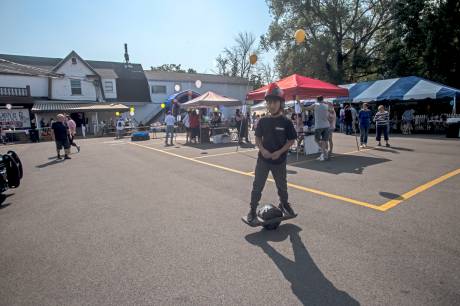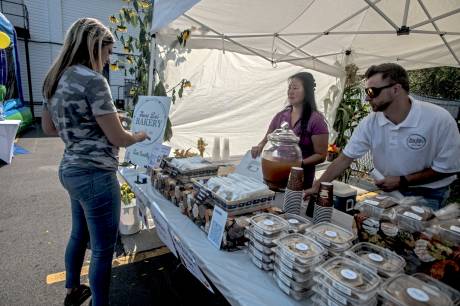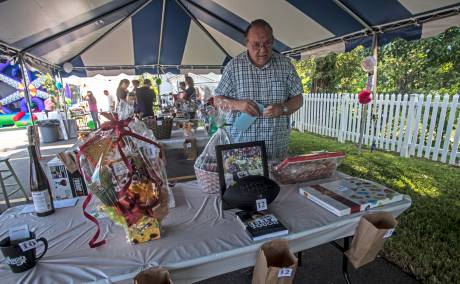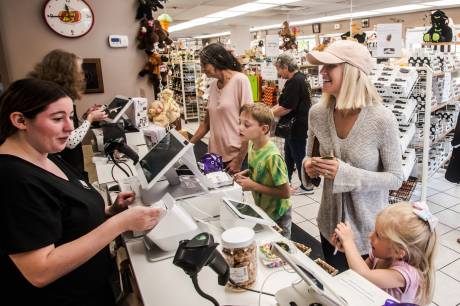There’s a certain library director who bowls, collects cocktail paraphernalia and has taken a “deep dive” into trivia tournaments. This person is also about to head southeast toward Westchester County.
Give up? You won’t make his trivia team — a regional first place winner — any time soon then. The answer is Bob Conrad, head of Richmond Memorial Library for the last eight years.
Conrad has taken a position as director of Chappaqua Library. His last day is Oct 28, and he got a little teary while talking about his past experiences and present relationship with Richmond Memorial Library.
“It’s a fantastic job, a great library. I only hope I’ve maintained the standards,” Conrad said during an interview with The Batavian. “I have a very active, hands-on board. They’re going to really enjoy the process of appointing another director, and show them what’s needed. My transition when I started, the success of it, was due entirely to the extraordinary skill and competence of the staff that I inherited from the previous director.”
Catalogue of accomplishments
He listed what he believes have been “my best work,” including to commission new library cards and logos, helping to introduce the Dolly Parton Imagination program, plus ensure that it’s funded and expanded; write a $25,000 grant from Ralph Wilson Legacy Foundation to broaden the scope of recipients for the Library Visits program to include under age 60 and caregivers.
He launched the Richmond Library Foundation to better manage endowments and solicit additional funding.
The Foundation is funding the library’s student intern this fall, named named the Joe Zaso Student Internship, after a former president of the Friends of the Library. A long-term goal of the foundation is to raise and manage funds for the library's unspecified long-term needs, Conrad said.
He has appreciated the opportunity of working with community members such as city schools Superintendent Jason Smith, who was supportive of the library director, Conrad said. Ever since he began in July 2014, he has found welcoming people.
“It’s always a tremendous privilege to serve at a library in any capacity, but as director, with a board that supports my capacity … from the moment that I walked in these doors, I had friends. And the day I walk out, I'll be missing them.”
The slow metamorphosis
He took a walk way down memory lane, to his first library gig, and the missteps in between. Though, they weren’t really missteps at all, since he enjoyed his part-time jobs at record and book stores, and coffee shops along the way to getting official library jobs.
Conrad was born and raised in Irondequoit, and left for Chicago at 17 to study radio, TV and film at Northwestern University. His goal, he sheepishly admitted, was to find “the best and fanciest college I could get into.” And one that he could also afford, he said. He didn’t just want a degree, but also one from a prestigious-sounding college.
He mulled San Francisco and New York City schools, but his mom wouldn’t let the teenager move to either coast. He settled on Northwestern, which had the best education for a film degree, he said.
And so my second tier of choices were Boston University and Northwestern. Northwestern had the better financial aid package for me as a low-income student. If you say low income in the article, my mom will be so embarrassed. It's her. It's her shame. I have no shame. I tell everyone,” he said. “When I graduated, I didn't really have jobs lined up, or prospects. You know, despite how good the school is, you're still another filmmaker out there.”
A change of (a tell-tale) heart
While working his part-time jobs, he learned something about his goal for a film career.
“One of the things I learned was, I didn’t particularly want to do that any more,” he said.
Conrad, now 47, also took a writing certificate course that produced many successful writers out of his classmates. He pointed to a poster of Seth Meyers on his office wall as an example.
He “really liked my life” then, he said, working in Chicago. And all the while, colleagues would advise him to continue his education. They’d say things like “Bob, you’re a bright young man who doesn't know what he wants to do for the rest of his life, and you want a career that supports creative endeavors and ambitions, good work life balance,” suggesting that he stay in Chicago and get a master's degree in library science.
“‘You could make a career at this,’ they said. And then I pursued my master's in library science. And I thought I would, because I was working in an academic library, I thought that would be my career. And I worked a number of paraprofessional positions in many colleges around the Chicago area and I worked reference desk at community colleges,” he said. “If I sketched it all out in detail, it would horrify you, but that's what young people's lives are like, you know, I need more money.”
He ended up working at a number of branches throughout the Chicago area, including his alma mater Northwestern, Eckhart Park, Herald Bezazian, and Mayfair branches. There were learning lessons throughout it all: in his first weeks at Eckhart Park, ironically while reading a book about rats, he had to diagnose and solve a rat infestation at the library; and at Mayfair learning snippets of Arabic to communicate with patrons.
Things got real when he knew that he could go toe-to-toe with any librarian.
“As a branch manager I recognized also that my skills could could be put on the market nationwide. So I was really looking for jobs in the San Francisco Bay area where I have friends, and in the New York City area at the time, because I wouldn't have minded moving there at the time,” he said. “And the New York City jobs are listed on the same library job ad that the rest of New York State is listed.”
Conrad's choice
As he scouted ads for library vacancies in New York, he found two: one each in Ithaca and Batavia. Having grown up in Monroe County, he was familiar with Western New York and opted to apply to Richmond library. Although he initially thought the city would be more like a Rochester suburb, he discovered otherwise.
“I thought that for one stupid reason, because in high school, our track and cross country teams would race against Batavia. So I made the assumption that Batavia must be a Rochester suburb, like where I was from. But as soon as I got here for the interview, I came early enough to drive around to scope out the lay of the land, I instantly recognized that no, it was its own small city,” he said. “And I started to wonder, is it more of a Buffalo city or a Rochester City? And it did not take me long to figure out it's a little bit of both. I instantly recognized that Batavia was someplace special. It took me the next couple of years to appreciate who lives here. The source of wealth is really agriculture.”
Being a “joiner,” it didn’t take long for Conrad to immerse himself into the community — becoming a member of Kiwanis Club, a bowling team, and Leadership Genesee, and deeply embracing team trivia. His team has played all over the GLOW region, and one season became first place champs.
What’s a tip for being good at trivia? Read widely, he suggested. It was only through a random Roddy Doyle novel he had read that he recognized one of the details to know the answer was Ireland, he said. He fought his team to say the answer, as no one else thought he was right. It was quite unlikely, given the keyword seemed to point to Italy, but that novel earned him rights to do a little ‘I told you so’ strut, Conrad said.
He looks forward to what’s ahead for him, and he expects there to be an interim director while the board conducts interviews for the next director.
“I’m one of those people drawn to this field because I value what libraries value: the power of great ideas, good ideas, bad ideas, and stories,” he said. “Libraries make us better people, and better able to govern ourselves. And I feel like in Batavia, the people I dealt with through this job were the best people in the community.”
Richmond Memorial Library Director Bob Conrad will be leaving his post at the end of October, and going to Chappaqua Library. Photos by Joanne Beck.






